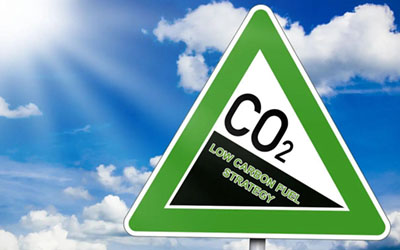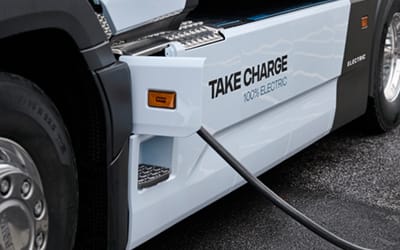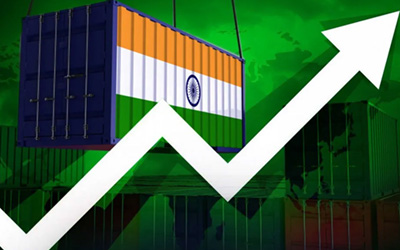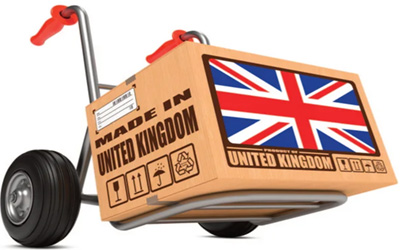Unlocking Sustainable Logistics: Navigating the World of Climate Partners and Carbon Footprint Measurement
In today’s rapidly evolving world, where sustainability takes center stage, the partnership between businesses and the environment is paramount. A pivotal aspect of this collaboration involves choosing the right “climate partner” to help you manage and reduce your “carbon footprint.” Both terms will be extensively explored in this article.
Understanding Climate Partners and Their Role in Sustainability
 A “climate partner” is an organization or platform that collaborates with businesses to measure, reduce, and offset their “carbon footprint.” The term “carbon footprint” refers to the total greenhouse gas emissions generated directly or indirectly by an individual, organization, event, or product.
A “climate partner” is an organization or platform that collaborates with businesses to measure, reduce, and offset their “carbon footprint.” The term “carbon footprint” refers to the total greenhouse gas emissions generated directly or indirectly by an individual, organization, event, or product.
For businesses operating in the complex landscape of logistics and transportation, selecting the ideal “climate partner” is more critical than ever.
Why Choosing the Right Climate Partner Matters
Selecting the right “climate partner” can be a game-changer for your organization. A reliable “climate partner” empowers you to accurately measure, reduce, and offset your “carbon footprint.” Beyond the environmental benefits, this partnership can also boost your reputation, setting you apart as a sustainable and responsible business.
10 Questions to Ask Your Prospective Climate Partner
 When evaluating potential “climate partners,” it’s crucial to ask the right questions. Here are ten key inquiries to ensure you make an informed decision and drive sustainability within your organization:
When evaluating potential “climate partners,” it’s crucial to ask the right questions. Here are ten key inquiries to ensure you make an informed decision and drive sustainability within your organization:
Emission Factors: To measure your “carbon footprint” accurately, inquire about the emission factors your prospective “partner” uses. These factors convert activity data into greenhouse gas emissions and should be based on reliable sources.
Methodologies: Understand the methodologies your “climate partner” follows. The Greenhouse Gas (GHG) Protocol and domain-specific approaches, like ICAO for air transport, are reputable methods. Ensure that the chosen methodology is robust and trustworthy.
Transparent Reporting: Clear and concise reporting is essential. Can your “climate partner” explain the measurement data in a way that you can confidently convey to stakeholders? This transparency is vital to combat accusations of ‘green-washing.’
Modal Coverage: Ensure your “sustainability partner” covers all the transportation modes your business uses. Seamless coverage eliminates the need for multiple measurement partners.
Vehicle and Vessel Identifiers: In shipping, the International Maritime Organization (IMO) number enhances emissions calculations. For air freight, aircraft codes provide essential information. These identifiers increase measurement accuracy.
Routing and Distance Calculations: Accurate routing and distance calculations are pivotal for precise emissions measurement. Ask how your “partner” handles these calculations, especially for shipping and rail transport.
Accreditation: To ensure the accuracy of calculations, check whether your “partner” is accredited by recognized independent bodies.
Streamlined On-boarding: The ease of on-boarding can significantly impact your experience with a “partner.” A user-friendly interface and efficient setup are crucial.
Data Integration: Depending on your technical resources, evaluate whether the “partner” offers integration options like APIs or basic CSV imports for seamless data sharing.

Offsetting Emissions: Understand how your “partner” can assist when conventional emissions reduction methods are exhausted. Collaborating with offsetting projects is a key component of this strategy.
The Crucial Role of Carbon Footprint Measurement
 Understanding and managing your “carbon footprint” is not just an environmental obligation; it’s a competitive advantage. It demonstrates your commitment to sustainability and responsibility, which can attract customers, partners, and investors who share your values.
Understanding and managing your “carbon footprint” is not just an environmental obligation; it’s a competitive advantage. It demonstrates your commitment to sustainability and responsibility, which can attract customers, partners, and investors who share your values.
Conclusion: Choosing Your Climate Partner Wisely
In the journey toward sustainable logistics and transportation, the role of a “climate partner” is indispensable. Selecting the right partner to measure, reduce, and offset your “carbon footprint” can make a world of difference.
By asking the ten critical questions outlined in this article, you can make an informed choice and ensure your business aligns with eco-friendly practices. Sustainability is not just a trend; it’s a strategic decision that secures your business’s future while contributing to a greener, cleaner planet. Make the right choice today, and let your “climate partner” be your ally in this vital mission.
BIFA is cooperating with Pledge, an integrated carbon measurement and offsetting platform, to help its members better understand and address the environmental issues that affect how they manage international supply chains.








